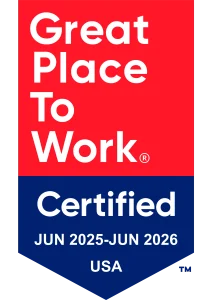How to Find the Best Location for Your Business
You’ve probably heard that business is all about “location, location, location.” It’s true — finding the right place for your business is an essential element of success. Choosing the location is also likely one of the most expensive decisions you’ll make, so make sure it’s an informed one.
When to Start Looking for Real Estate
If you know you’re going to operate a brick-and-mortar business, it’s never too early to consider what elements you need in a property. Even before you engage a real estate agent, you should be considering which neighborhoods make sense for your business, what your must-haves are, and what your price range is.
However, you may not want commit to a location for your business until you’ve locked down funding. It’s important to take care just in-case you’re not approved for as much funding as you expected or if something else in the process doesn’t work out. For example, if you’re purchasing a franchise, you need first to be approved for the franchise and receive all the franchisor’s building specifications before committing to a location.
Buying real estate or signing a lease agreement is a big financial commitment, and it’s not easy to back out of a deal without losing some money. Have all of your ducks in a row before signing any property paperwork.
Renting Versus Buying a Business Property
Depending on the property you find, you may or may not have the option to buy. Commercial property is often owned and then leased to tenants. However, in some cases, the owner of the property is open to considering either a sale or a lease. In other cases, the property could be for sale without a lease option. It’s important to know which option(s) you’re comfortable with. When deciding whether renting or buying is the right route for you, consider these factors.
- Control of the property. If you want to make significant changes to the property or complete a build-out, owning may be a better bet. Some leases do allow for changes, but it’s something to be clear on before committing.
- Long-term cost. Typically, leasing space will be better for your cash flow in the early years of your business, but real estate is an investment. If times are tough and you own the property, you can leverage the real estate as an asset. If your cash flow is tight, it probably makes sense to rent and pay the lower monthly payment.
- Maintenance requirements. If you don’t want the risk of pricey maintenance needs or don’t feel comfortable managing the general upkeep, you may be better of renting from a landlord you trust rather than being responsible for all of the building upkeep (of course, just like renting a home, you are responsible for an extent of the upkeep).
- Tax implications. There may be benefits to leasing versus owning and vice versa. Work with your accountant to get a good understanding of the tax implications of owning or renting a property and how it will affect your situation.
- Mobility. Depending on the nature of your business, it may serve you better to be able to pick up and move if you want to. Or maybe you’re hoping to upgrade the area or building you’re in, eventually. If you need some form of mobility, it makes more sense to lease than to buy. The exception is if you can afford to lease the space to someone else after you’ve moved your business.
- Future property value. If you’re in an area of appreciating property value, it might make sense to invest in buying instead of leasing — you can sell it in the future for a profit and save yourself rising rent costs. However, if you’re in an area of declining property value, be wary of getting a ‘good deal’ that you may have to one day sell for a loss.
How to Find the Right Property for Your Business
Working with a Real Estate Agent
Finding an experienced trusted real estate agent who is knowledgeable about commercial properties can make all the difference when shopping for the right property. Like anyone you hire to assist you with your business, you should feel that they’re the right fit for your personality, your goals, and your specifications. It’s a good idea to interview multiple real estate agents, and if someone isn’t a good fit, it’s okay to go your separate ways.
Questions to Ask About Every Property
Whether you’re asking these questions of your real estate agent or discussing with a business partner, answers about each property will help you determine whether it’s a good fit. This process should also help you further narrow down which aspects of a property are most important to the success of your business.
- How much foot traffic is there? If you own a retail business or restaurant, foot traffic is extremely important for ensuring new customers become familiar with your business.
- What are the area’s demographics? If customers are visiting your business (versus you going to them), the demographics of people in the area should match that of your target audience.
- Is the location accessible? Is there parking, and if not, are you confident that customers will come to your business without it? If the foot traffic is very high, parking may not be an issue, but if not, parking and accessibility may be something to prioritize in a location.
- What’s the local competition? Sometimes a healthy dose of competition can help your business. For example, if you’re a casual restaurant next to a busy office complex, multiple locations to get lunch can draw a bigger crowd. However, if you have a very niche business and there’s already dominant competition in the area, this could be challenging.
- Are there zoning restrictions? Zoning restrictions and other bureaucratic limitations aren’t something you want to learn about after committing to a location for your business. If you plan on making major changes to the property, make sure they’ve approved by all parties (building, city, etc.) before committing to that specific location.
- How much are utilities? Check with the landlord and/or building owner to see what typical utility costs are and if there are any other regular building expenses you should be aware of. Though these costs aren’t necessarily fixed, they are regular, and you need to allow for them in your budget.
- What is the community like? Ask about people and other businesses in the community. If it’s a tight community with regular events, this can be a great way to get to know new customers and potentially partner with other local businesses.
- How close is it to your home? Starting a new business is extremely time-consuming, and you’ll no doubt be spending some late nights at your office, but it’s important to maintain some work-balance harmony. If a long commute is a deal breaker and you’re not willing to move, then only look close to where you live.
- What is hiring local talent like? Depending on your type of business, how expansive your location search is, and if you’re planning to hire employees, you’ll want to consider who is in the area for potential hiring. Would your ideal employees have an easy commute to your location? If not, you may want to look in other areas.
It’s easy to get excited about finding a location for your business — it starts to make the whole thing feel real! But the key to finding the best location is just like any other aspect of starting your business: Do your research, go in with a plan, and ask a lot of questions.















